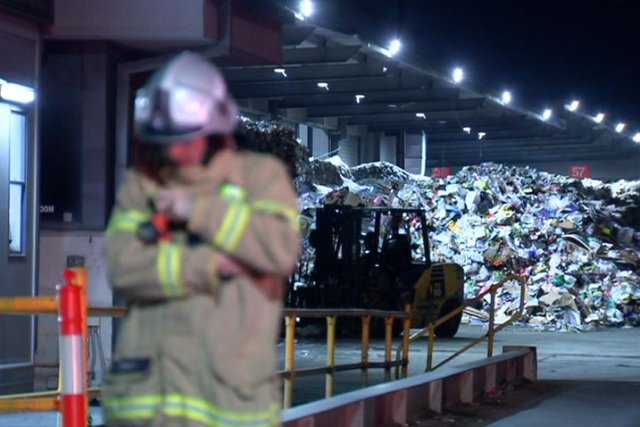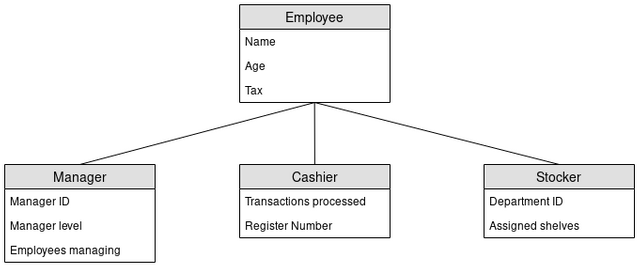What if programmers ran government?
I've been keen on writing some occasional opinion pieces on some things I tend to think about, just sort of like a little bank of ideas that I can come back to later. They will probably mostly relate to the ways in which I think the world is being run incorrectly relating to economics and governance. So let's get started!
The current state of the governments and economies of the world
So I've been reading some economics books after taking a big interest in economics during the start of this year. From this and my experience in the cryptocurrency industry, I've noticed one key thing, and this book says it blatantly.
"There are too many laws and too many restrictions that eventually it's going to become a whole big mess that no one wants to maintain and it's all going to collapse, or at the very least, reform itself completely."
What this quote mentions is that we have way too many finicky rules to deal with just to live our lives and eventually human nature will prevail and we'll be too lazy to follow or maintain them. Let's look at an example...
Australia's recycling industry
Before I continue, I must note that this issue does also affect countries other than Australia, it's just I am closer with Australian news than those from other countries.
Many didn't know that the majority of Australia's recyclable waste was being sold and shipped to areas in Asia such as China and Indonesia where they would then recycle it and turn it into new materials. However, as these nations developed, they were making enough of their own waste and no longer wanted to import our rubbish. So now we are stocking up on recyclables in huge warehouses waiting for the day that we can actually use it. And we are running out of time before they start dumping it into landfill.
The reason?
SKM recycling went into voluntary administration when it started stockpiling rubbish and got an order that banned its glass stockpile at one of its depots due to fire risk. This led to insolvency because they couldn't process it here and couldn't send it overseas, and now they're sort of screwed.
So essentially, if we could do it all here, we'd have no issue.
Any business' biggest cost will almost always be employment, and I must say, Australia is one of the best places to work but one of the worst places to set up business. This is due to the sheer amount of regulation, protection and benefits Australian workers receive. As an employer, you can't discriminate when employing, you also have to have a sufficient reason to terminate someone's employment, give them sick leave, pay out a lump sum redundancy payment, have worker's compensation, workplace health and safety, you have to pay superannuation, maternal leave, paternal leave - aaaaaaaAAAAAAAAAAA!
I think you can see one of the reasons why SKM didn't run much domestic processing. I'm not even going to mention electricity costs.
A brief explanation of foundational economics
When you work at a job, you get remunerated with money and you use that money to purchase stuff you need and want. That money you spent then goes into the hands of the workers of that business (and more) which then lets those people spend more, and then the cycle repeats. When more work gets done, more money goes into your hands so you can spend more. When less work gets done, less money goes into your hands and you can buy less.
The problem we have with this mess of legislation and regulation is that we are disrupting this sacred and fragile cycle. You can't have a job if there's no business that wants to hire you. It's actually discouraging businesses from starting up.
Suppose you had two options (and forget being able to cheat the system):
- You could eat blueberries so long as every time you go to eat one, you have to log the time you are going to eat it, when you finish eating it, measure the weight, measure the quality, take its temperature and carefully peel it.
- You could eat mash potatoes instead.
Option 1 requires you to:
- Take the time to comply with rules
- Buy compliance equipment (log book, thermometer, etc)
- Costs resources (pen and paper)
Whereas option 2 is permissionless.
...Oh, hey, is that the blueberry market crash I just heard?
Another good example, I am watching the TV while writing this, watching Bondi Rescue. A lifeguard had caused an incident that had to be reported to head office, so he had to stop his job, stop monitoring the beach to go and tell some guy in a little office across the road that he accidentally called someone an idiot... Absolutely idiotic.
Where programmers fit-in
Programmers are the experts in being lazy. Now being lazy isn't a bad thing, it is how the universe works and it's how humans work. So my idea is maybe we can apply such principles to governance.
An example of laziness in programming
When you start up your computer, it needs to load the operating system into memory so that you can login and see your desktop. But it doesn't need to load the web browser into memory because you haven't clicked it yet.
This is called lazy loading. It means that there are resources ready to be used when it is needed, rather than proactively consuming them when you don't know whether they will be used.
Resourcefulness
Programmers are resourceful, they understand what they are consuming, what they need and can anticipate future needs, here's an example...
Garbage collection is a process while a program runs that ensures memory is freed up when you finish using it or doing something in it.
A good way to put this is let's say you have a party. You all have lunch and the plates and cups are scattered all over the table. Some people enjoyed their meal so their plates are clean, some not really so there is still some meat and veggies on them. You're about to cut the cake and serve dessert but there's no room, so what you do is you clean up, then serve dessert and continue the party. And when the party is over, you don't just leave it there, that's gross, you clean up afterwards.
Organisation
Another great thing is that programmers like organisation. Programming languages are very well organised and there are only very few things to learn in terms of flow and syntax which can be used to create an infinite amount of things.
Here is an example of a structure that programmers usually follow, classes:
Here we find the concept of an employee, an employee can do lots of things and they have certain things like a name, age, amount of tax, etc. But what an employee can't do is perform transactions, can't stock shelves and can't manage staff - that's the responsibility of a cashier, stocker and manager.
Every cashier, stocker and manager are all employees and have a name, age, tax, etc (inherited from the employee above) but every employee is not a cashier, and so forth. every employee has their basic information but specialise in specific tasks.
Do you see the great thing here? We've compressed a whole bunch of useless repeating information into a super organised format that is easy for people to understand.
Deregulation and restructuring is what I'm talking about.
But laziness bites us on the butt
The problem with this idea is that it likely won't ever be implemented, simply because it's too hard to do it. The clerical, legal, political and monetary strain is just too much for this sort of change.
This is a phenomenon known as human (aka cognitive) inertia, ie, the resistance to change.
Or to put it more simply, laziness...
Simplification is probably the way to go
Occam's Razor is a concept (that I feel) is lesser known:
You can see this in a lot of things, for example, why is a car's wheel a circle? Because it minimises the resistance of the car on the road. You don't need a complicated arrangement of shapes or funky contraptions, you just need a circle.
Complicating things make people confused and do more work to try and understand something, a method that turns a lot of people off. Not to mention, it is more expensive and often wasteful.
Simplification means that people can see a clear goal, they can think for no longer than 1 second and say "oh, I know how to do that".
Conclusion
Now I'm not saying that this idea is a catch-all solution to the worldwide shambles of government, rather it seems like a plausible approach to the issue.
I do however foresee instances where this doesn't work, for example, criminal law. There are so many complaints people can make, things people want and questionable moral decisions to be made that it might not be compatible with what I have written.
All we know is the world will be how it will be.



@tipu curate
Upvoted 👌 (Mana: 0/4)
To listen to the audio version of this article click on the play image.

Brought to you by @tts. If you find it useful please consider upvoting this reply.
I am reminded of a story of the power of laziness...
A toothpaste manufacturer was having an issue where their assembly line systems were sometimes boxing up toothpaste boxes where the machines weren't actually putting tubes into the boxes. They hired a consulting company to fix the problem. The consultants did several tests and determined that they needed to install a secondary line check with a scale. If the scale detected a box of toothpaste below the average size/weight limit, it would stop the line until someone came and removed the empty box from the line. After a few weeks, the management were amazed that the fix was 100% successful. They didn't have a single instance where a box passed the line without a tube of toothpaste. Based on the initial fix, though, there should have been a margin of error, so they went to the line to double check their figures. When they got there, they found an ordinary desk fan clipped to the belt area in front of the scale with a pile of empty boxes underneath it. Apparently, the employee in charge of removing and restarting the line when the scale triggered got so fed up with getting up and resetting the line that he clipped a fan to the equipment to blow the empty boxes off the line before they got to the scale.
Laziness inspires ingenuity and creativity.
Perhaps you are familiar with the Three Virtues of Programming by Larry Wall?
This is exactly the point, often people are disinclined to talk about laziness in a serious context because they believe their reputation is on the line. It is a tool at our disposal and we can take advantage of it to do spectacular things.
But let's not forget, there's good lazy and there's bad lazy.